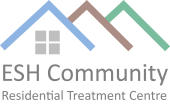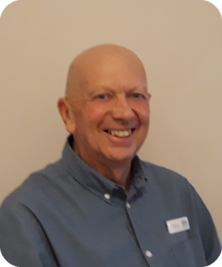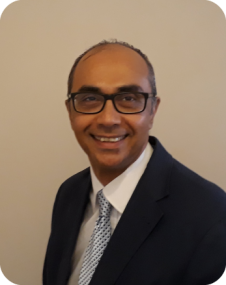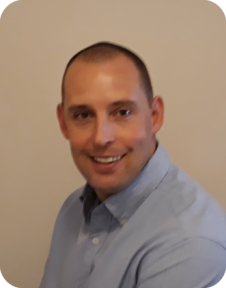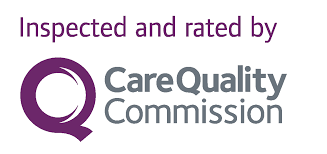Our Approach
Drugs and Alcohol are not the problem!
Recovery from addiction is not about the alcohol, drugs, gambling, sex or chocolate, it’s about identifying the issues that are causing an individual to want to use ‘something’ in the first instance – usually for emotional pain relief.
Removing the drugs or alcohol by safely detoxing someone in a rehab environment is just a small part of the treatment. It is relatively easy to complete the initial medically assisted detox aspect of a rehab placement, but the real solution and essential component of any rehab placement is the person focused rehabilitation support that follows the detoxification.
It's the rehabilitation that identifies the root causes which have eventually resulted in the person’s use of alcohol or drugs to manage their emotions and feelings. At ESH Community we provide this rehabilitation support following the detox through professional counselling, group therapy and education sessions.
"It is absolutely essential that individuals are in a safe and trusted rehab environment when they start to address their root cause issues."
If people are not separated from drugs and alcohol in a safe place and supported 24/7 when they are identifying and addressing their root cause problems the emotions get too much for them to cope with. Without the professional support and guidance they resort to the coping mechanisms of using alcohol or drugs as they have done in the past to deal with those very same emotions – they are then back in the problem cycle of addiction again.
What is addiction and recovery?
Addiction is not about simply removing drugs or alcohol from a person’s life, it’s about getting to the root of the problems and resolving whatever caused the need for the person to bury their emotions, these feelings could include fear, anxiety, giving rise to a lack of self belief and inner insecurity.
When someone starts to use drugs or alcohol at an early age to help block their feelings and emotions, they stop growing emotionally, they don’t develop the life skills or coping mechanisms, their emotional growth stops, they simply don’t grow up.
We hear families and friends talking about their loved one "saying they’re acting like a teenager" – yes, they are!
"ESH Community residential rehab is actually a school of unlearning."
People continue to attempt to cope with life by using drink, drugs or other escapes to temporarily relieve their angst and fear. A person’s addictive behaviours and tendencies then lead them straight to the belief that if a little bit of the temporary emotional relief works, then more of the same temporary relief will work better – that’s addiction!
It doesn’t matter what age, gender, religion, faith or education people have had, the problem is that people’s previous approach to life hasn’t worked for them, so their thinking, their values, the way they manage life, and how they handle emotions all need to change.

For the individual with addiction problems, and their families and friends, recovery is most definitely about effecting a change.
To put it bluntly, change is required because the way the person has attempted to cope with their life, usually over many years, has resulted in the need to use drugs, alcohol, gambling etc. to manage and deal with their feelings and emotions, but this only provides temporary relief – recovery is about giving people a permanent and ongoing life solution.
Who has addiction problems?
Let’s dispel some myths about the people who have addiction problems.
All staff members at ESH Community including the management have lived experience of addiction and are now professionals in their own right.
In our experience, people who have had addiction problems are some of the most intelligent, brightest, sensitive, creative and caring people on the planet. This is very apparent in all our staff members who are ‘in recovery’ and we certainly see this, but masked by addiction, in the residents that we support.
We use the terminology ‘in recovery’ because recovery is a lifelong process of learning about yourself, learning how to be the real and authentic you, and to be comfortable in your own skin.
"If you ask anyone who is in recovery from addiction what was the most difficult thing they ever had to do – the answer will almost certainly be – to ask for help"
There are some common themes our residents talk about, it could be that they didn’t fit in from an early age, they didn’t like the society they had to live in, they wanted to change things but didn’t know how, they actually just acted their way through life being what they thought they should be in order to try to fit in. Generally, they just didn’t know how to deal with their emotions which may have been caused by specific life occurrences in the past, some of which they have held onto for years – ultimately it could be that their pride has never let them ask for help.
Professional and experienced staff
A key aspect of anyone’s ongoing recovery from addiction is to help others who are on the same journey, giving something back, this rebuilds their self-esteem and uses their knowledge, skills and personal experience to the full.
All our professionally qualified staff also have their own personal experience of addiction so we absolutely know what we're talking about. Not because we've been taught it, but through our own experience. We understand the feelings that people in addiction have and we understand how difficult it is to start recovery and take control of your life.
We are passionate about our own recovery and we are equally as passionate about help people with theirs.
"...most importantly, we understand what is required to achieve and maintain an alcohol and drug free lifestyle breaking the grip and the chaos of addiction."
It is now well recognised by Public Health England (NHS) that support from professionals who have their own personal experience of addiction and recovery offers the best chance of regaining and sustaining a life free of alcohol, drugs and other addictions.
In our experience the best and most effective addiction support comes from people who have experienced the problems of addiction themselves and who have found a solution and purpose in life.
People in recovery from addiction have a passion to help others, and when a person has a passion for something they are invariably good at what they do and our staff have that passion to help others.
All our staff are living the principles of recovery on a daily basis in their own lives, helping and supporting others: they are the best teachers by example that you could possibly get.
Staff obviously need their formal professional qualifications in Health and Social Care, but there is no substitute for personal experience, and when this is combined with the professional expertise it’s a formidable combination.
There is a solution
Residential rehab placements are an opportunity for individuals to have some time in a safe place, to look at themselves and to consider their lives and futures with the help of other people who have done exactly the same.
"Our residents have also described the centre as an emotional retreat where they can take stock of their life in a safe environment, taking time out to evaluate their future with support from our professional staff."
We would suggest that when anyone is looking for a solution to a problem, they should look for support from people who have experienced the same problem themselves and found the solution.
People who have addiction problems are not bad, weak willed, or stupid, in fact in our experience they are extremely bright, intelligent, creative and caring individuals, but this is all hidden behind their addiction.
Just because they don’t fit with society’s prescribed model of what the perfect person should be and look like doesn’t make them bad people, they’re just misunderstood and have probably lacked and never developed the personal awareness and coping mechanisms to be able to deal with life!
The support and guidance provided by staff who have had an addiction problem themselves is so important to help people find themselves, their passion, their purpose and their place in the world.
Ongoing essential aftercare
Sustainability is vital and as part of our approach to long term stable recovery we provide the ongoing aftercare and support to achieve that.
There are many many people who manage to stop drinking, gambling or using drugs for periods, sometimes long periods of time. The problem isn't the stopping, it's staying stopped that is the issue. Addiction is a progressive illness. It never gets better. Unless addressed it just gets worse.
"If you want to move forward in your life without it being controlled and dominated by drink or drugs then we can help."
To support people with their aftercare ESH Community has a network of individuals in long term recovery who work together as a recovery community to support our residents when they leave rehab.
We provide aftercare support for families as well as the ex residents.
We provide two follow-up counselling sessions after residents have left the rehab.
We introduce residents to local mutual aid support groups and addiction recovery meetings and accompany them to attend the initial meetings if required.
We run weekly in-house supported recovery meetings that are available for all ex residents to attend.
Move on accommodation
If individuals are not able to go back to a supportive environment, we work with residents to identify the appropriate accommodation which could include safe and supported shared housing that will help individuals re-integrate into the community and progress their recovery.
ESH Community has established links with local organisations and reputable private landlords who provide move on accommodation.
